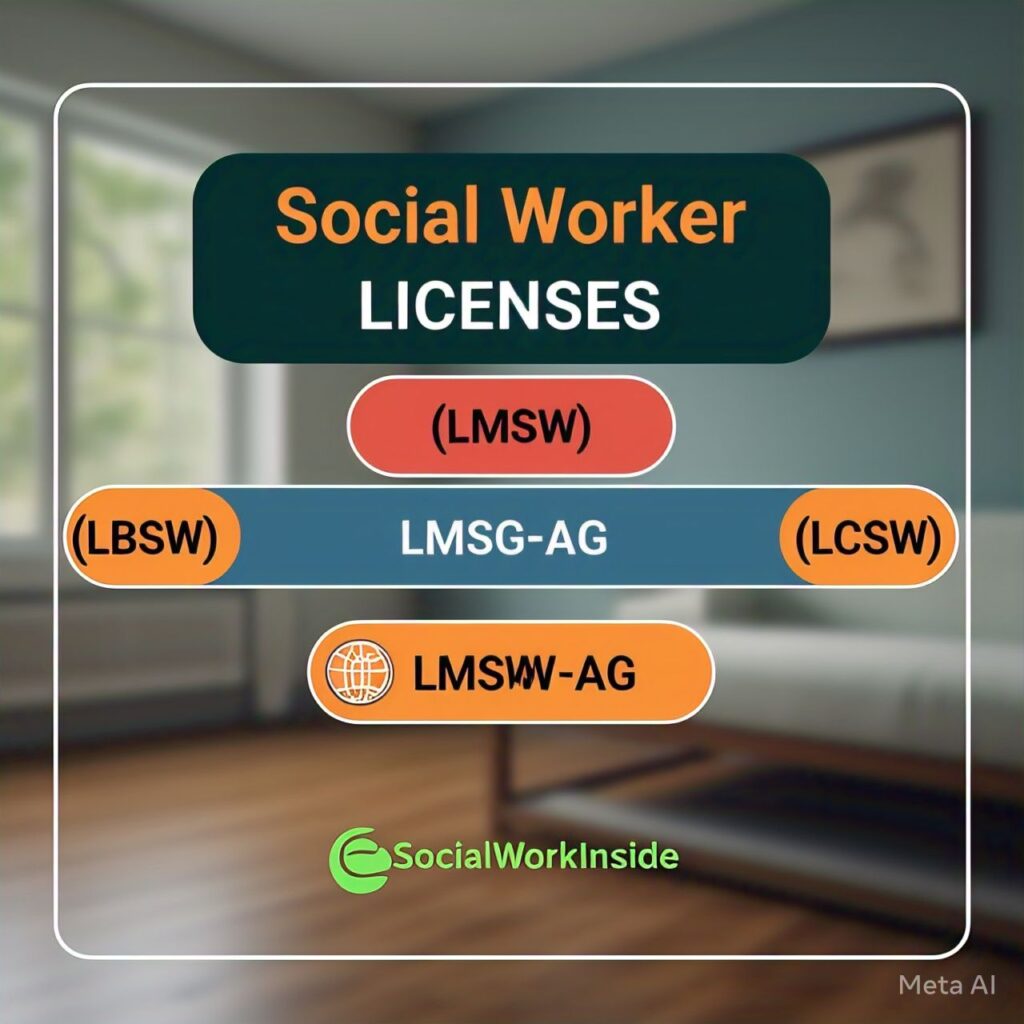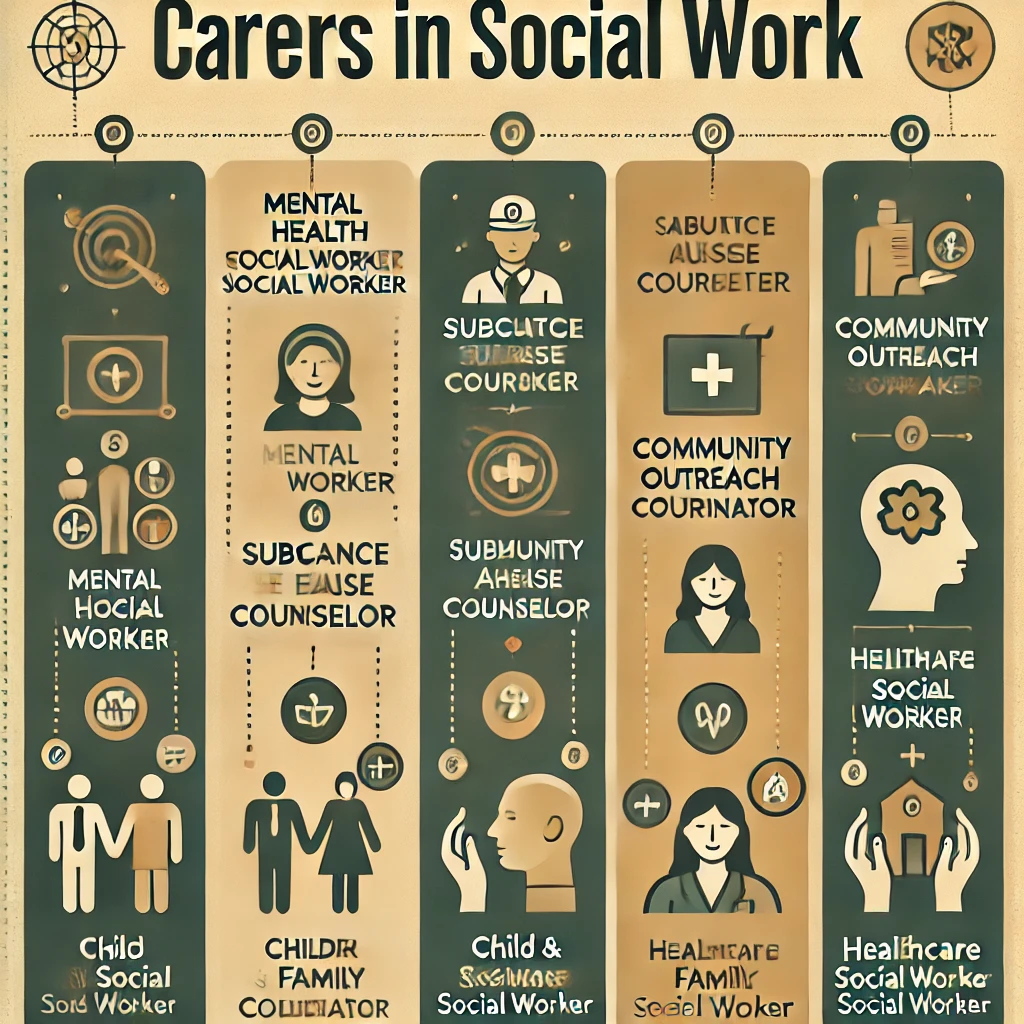
Social work licensure is a cornerstone of professional practice, ensuring practitioners meet rigorous standards to serve communities effectively. Understanding the various licenses, their requirements, and their impact on career trajectories is vital. This guide demystifies the licensure process, explores state-specific regulations, and highlights pathways for advancement in this rewarding field.
Types of Social Work licenses Levels
Social work licenses vary by education, experience, and specialization. Common credentials include:

- LBSW (Licensed Bachelor Social Worker): Entry-level, requiring a BSW degree.
- LMSW (Licensed Master Social Worker): For MSW graduates, enabling non-clinical roles.
- LCSW (Licensed Clinical Social Worker): Advanced licensure for clinical practice, requiring supervised hours.
- LICSW/LISW (Licensed Independent Clinical/Independent Social Worker): Similar to LCSW but with state-specific titles.
Key Distinction: Clinical licenses (e.g., LCSW) permit therapy and diagnosis, while non-clinical roles (MSW) focus on case management or macro social work.
Education Requirements for a Social Work License
A CSWE-accredited degree (Council on Social Work Education) is mandatory for licensure.
- BSW: Qualifies for LBSW exams.
- MSW: Required for LMSW/LCSW. Clinical tracks often include specialized training in mental health or trauma.
- Doctorate (DSW/PhD): For research, academia, or advanced leadership roles.
ASWB Examinations Requirements for a Social Work Licensure
The Association of Social Work Boards (ASWB) administers tiered exams:
- Bachelor’s, Master’s, Clinical, and Advanced Generalist exams.
- Prep Tips: Utilize practice tests, study guides, and workshops. Pass rates hover around 75–80%, with retake policies varying by state.
Supervised Clinical Experience
Clinical licensure demands 2–3 years (3,000+ hours) of supervised practice. Key steps:
- Secure a qualified supervisor (often an LCSW with 5+ years’ experience).
- Document hours meticulously, adhering to state board templates.
Each license level builds on experience—see the types of field placements that prepare students for advanced roles.
State Licensing Boards: Become a Licensed Social Worker in Your State
Licensing is state-regulated, with differences in:
- Exam eligibility (e.g., California’s additional law/ethics exam).
- Reciprocity: Some states accept out-of-state licenses via endorsement; others require re-examination.
- Application Fees: Range from
- 100–
- 100–500.
Pro Tip: Check your state’s board website for precise guidelines.
Continuing Education (CE) for License Renewal
Maintain licensure with 20–40 CE hours biannually, often including:
- Ethics, cultural competence, or telehealth training.
- Approved providers: NASW, universities, or online platforms like CE4Less.
Related: Top Jobs After MSW, MSSW, or MSSA: Find Your Best Career Path
Career Opportunities by Social Work License Level
- LBSW: Case management, community outreach.
- LMSW: Healthcare coordination, policy advocacy.
- LCSW: Private practice, clinical therapy.
Also Read it: LCSW vs LMSW Meaning and its Differences
Salary Insights: LCSWs earn ~
60,000–60,000–85,000 annually, outpacing non-clinical roles by 20–30%. Please confirm it Varies

Specialty in Social Work Certifications
Boost expertise with credentials like:
- Certified School Social Worker (CSSW).
- NASW Clinical Social Worker in Gerontology (CSW-G).
- Addiction Counselor (CASAC).
Legal and Ethical Considerations
- Scope of Practice: Adhere to legal limits (e.g., LCSWs can bill insurance for therapy).
- Malpractice Insurance: Essential for clinical practitioners.
- Disciplinary Actions: Report violations to state boards to maintain licensure.
International Social Work Practice
Transferring credentials abroad requires:
- Credential Evaluation (e.g., through ICSW for U.K. recognition).
- Country-Specific Exams: Canada’s CASW exams for equivalence.
Emerging Trends in Social Work Licensure
- Telehealth: Post-COVID, states now mandate cross-state licenses for virtual care.
- License Portability Advocacy: Efforts to standardize requirements nationally.
- Equity Initiatives: Addressing exam cost barriers (
- 260–
- 260–520) for diverse candidates. Please confirm it Varies

Resources for Success
- Study Tools: Therapy Development Center for ASWB prep.
- Networking: Join NASW or Clinical Social Work Association (CSWA).
- Mentorship: State chapters often pair candidates with seasoned professionals.
Glossary of Key Terms
- ASWB: Administers social work licensing exams.
- CEU: Continuing Education Unit.
- Scope of Practice: Legal activities permitted under a license.
